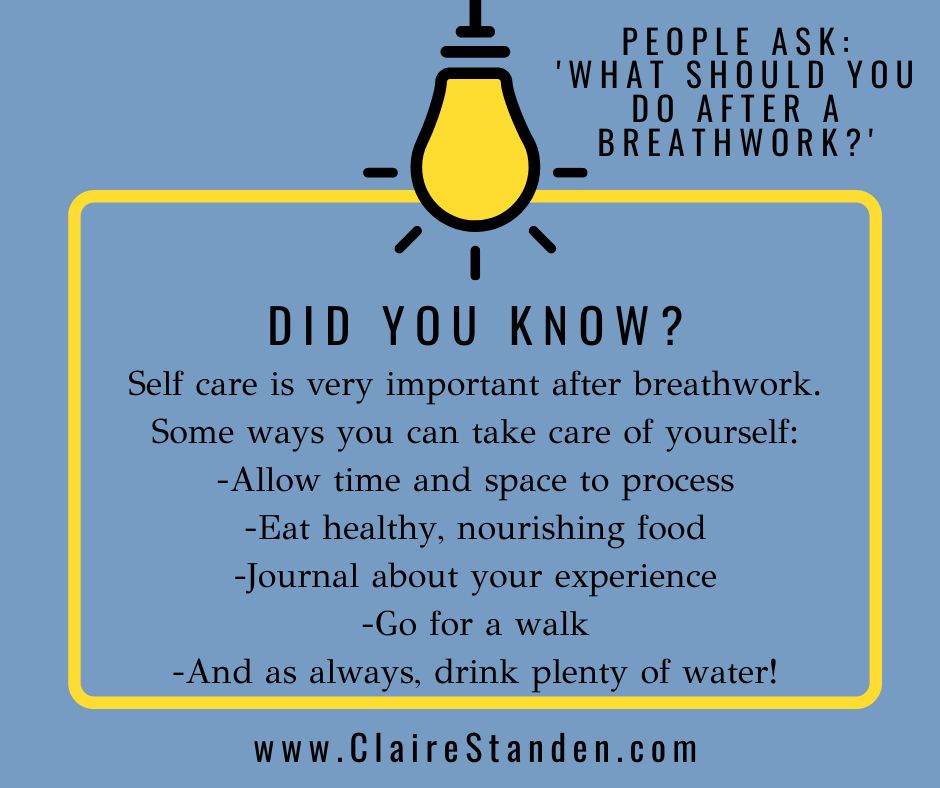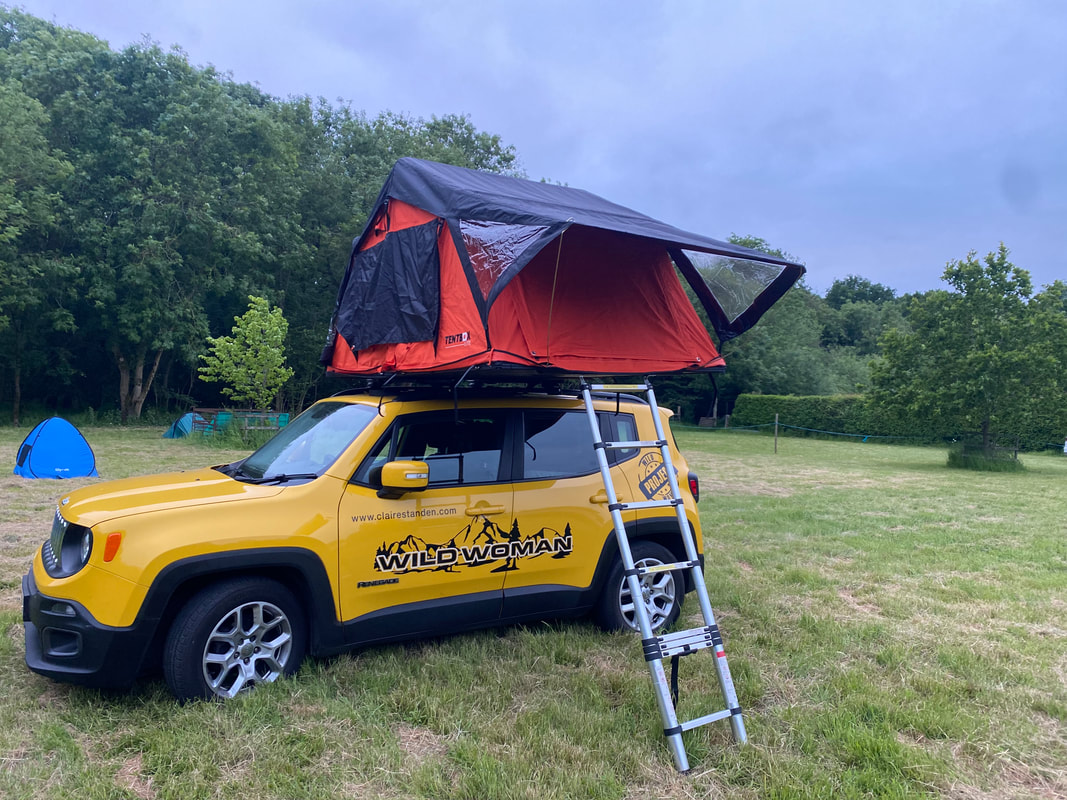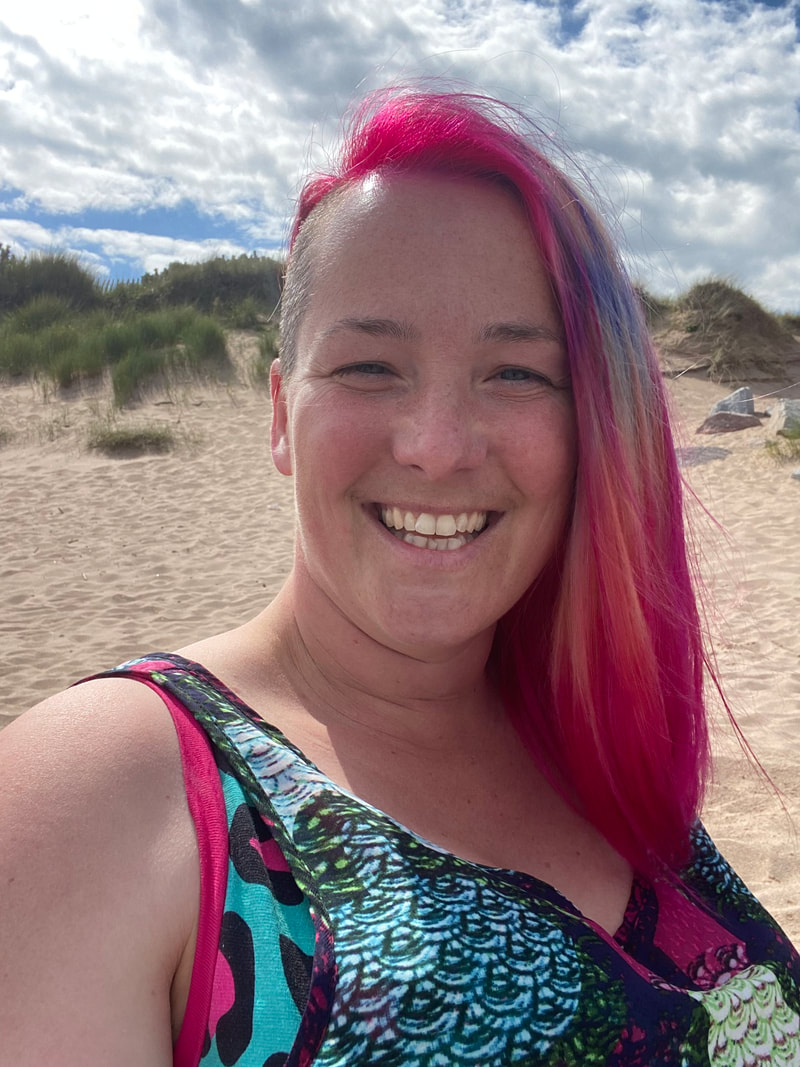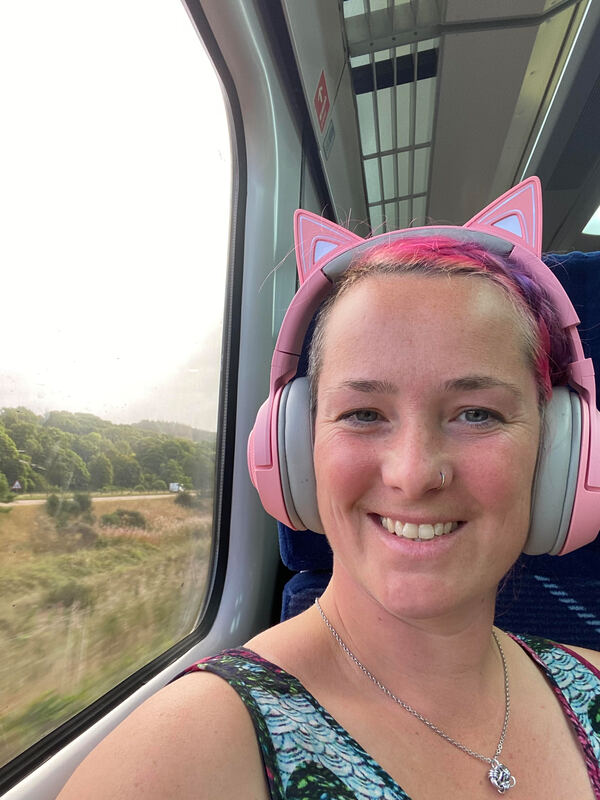|
As a start to the festival season, I travelled down to Cambridgeshire to facilitate at the Breathing Space festival. A super intimate space, on a gorgeous private estate, it was everything I hoped it would be and more. Breathing space facilitators and teachers hosted workshops across the weekend, from improv to using the voice, tantric movement and everything in between.
My workshop aimed to bring wellbeing to the everyday. Don't you find that we go away to these events and 'switch off' for a couple of days, only to meet the stark reality of our everyday lives on the Monday morning with a certain amount of resignation. My work is about integrating 'the work' that happens in safe and sacred spaces such as these, so that we feel it everyday, in every way. So I invited participants to 'bring it', something from their everyday life that troubles them and we witnessed each other, in circle. From there, we worked with breath and movement to embody a new perspective. Integrated work such as this is, in my humble opinion, the absolute boss of personal development work. When we can use both body and mind to bring to bear changes in how we approach the challenges of life, it suddenly doesn't seem so... challenging. This approach works whether you're dealing with work, family or relationship stuff, or anything else you might think of- because it all starts with you. So it was with a happy heart that I returned home to Scotland, knowing that in some small way- I'd contributed to people's journeys towards being happier, healthier humans. One final thing... if you go to a few festivals or you're just a freedom fan, you can use my referral link for money off a TentBox, like the one featured in the photo. I can't recommend it highly enough, and I'm often stopped at service stations while people ask me all about it!
0 Comments
 For many people, a breathwork session, whether in person or online and in a group or individually, will be their first experience of really connecting with their body for a while, and perhaps even for a very long time. We tend to be quite disconnected from our body’s wisdom and therefore after a breathwork which may be relaxing, bring insight or really quite powerful emotionally or physically, people wonder what they can ‘do’ afterwards. In the world of breathwork, we encourage a period of integration after a breathwork, which could involve lying or sitting quietly listening to a favourite piece of music or in silence, or journaling what your experience was like. In a group environment, sharing your thoughts and experiences can be a really important part of integrating. Here are some other tips to help you ground and centre after a breathwork session. > Drink plenty of water > Carve out some time for yourself if at all possible > Be gentle with yourself as things may come up from the past that you hadn't realised were still bothering you. This is your opportunity to feel all your feelings about it, and release it once and for all. The process may take some hours, days or even a few weeks. > Go slowly, clear your diary and listen to your body's wisdom. You've invited it to speak to you, and when we listen to the subtle messages we are listening to the whispers so that our body doesn't have to 'scream' to get our attention. > Allow this work to bring you more self awareness. It may feel raw and tender at first to recognise your patterns of thought and behaviour, but ultimately it brings you huge freedom. > If you need extra support, reach out to a loving and supportive friend or a healthcare professional. If the breathwork was facilitated, reach out to the facilitator with any questions. Frequently Asked Questions ✨ Is it normal to feel tired? This is totally normal after energy work and will resolve itself with time, just be sure to get adequate rest. ✨ I'm feeling really emotional, is that normal? Yes. You have released some trauma that was stored in your body and this will require some 'settling' in your mind and body. Things have been 'stirred up', and they will settle back down again with time. You may need the help of a professional to process this, but you can trust that your body will only release what is meant to be released. ✨I feel like I've been hit by a bus, will I be OK? You will. Some people term this a 'healing crisis', and if it happens to you, refer to the aftercare instructions above and follow the ones that feel supportive. Question: Can you teach yourself breathwork?
There are thousands of breathing techniques, and you can find out about them free or low cost, through podcasts, books or free online resources. You can absolutely teach yourself breathwork, and it is one of the most empowering journeys you can go on since the breath is always with you and you can access this powerful transformative modality absolutely free wherever you are in the world. Most books about breathwork include practices you can do, and there are numerous breathwork schools that provide free breathwork sessions as a gift or as part of their commitment to providing free and low cost opportunities to as wide a community as possible. A couple of these are Breathing Space, started by Benedict Beaumont and Neurodynamic Breathwork with Michael Stone. Breathwork can be short, focused exercises, or it can be longer sessions (between half and hour and 3 hours!). Breathing can be focussed on regulating the nervous system or activating it, depending on your goals and there are even specific breathwork patterns you can do to increase concentration, focus, athletic performance, mental agility or spiritual connection. Breathwork has been proven to be more effective than meditation for reducing stress (Hubberman Lab Podcast). So however you want to engage with breathwork, the opportunity exists to do it. You could also book a breathwork session with a facilitator in person or online, attend a group breathwork session in person or online or use a breathwork app such as Breathwrk, iBreathe or Breathe+. Some of these are listed below. Free breathwork sessions: Breathing Space https://www.makesomebreathingspace.com/weekly-breathwork Alchemy of Breath https://alchemyofbreath.com/free-breathwork-sessions/ Micahel Stone Neurodynamic breathwork https://breathworkonline.com/flexible-date-free-breathwork-workshop-home/ There are also podcasts, including: And Breathe with Rebecca Dennis The Breathwork Club Breathwork with Ryan Williams Some books you might want to check out include: Breath by James Nestor The Oxygen Advantage by Patrick McKeown And finally, here are 3 Simple breathwork techniques to get you started: Coherence Breathing: Why:
How:
Box breathing Why:
How:
Lung stretch Why:
Congratulations! You just taught yourself breathwork! Finally, did you know I have a FREE guide to getting started with breathwork? The World is calling for us to step up and lead as powerful women in our families, our workplaces and in our communities. Yet, what we learnt at school was how to follow instructions dutifully, how to get good grades and how to please the people around us. Little chance you were equipped with the skills of tuning in to yourself, or to your higher wisdom. No danger you were empowered with the tools you need to remain grounded, to take chances on building a better life, and a better World while remaining emotionally regulated. Highly unlikely that you had these skills modelled to you, since too few people have them to demonstrate... Personal change-work has been much belittled by those who don't partake. Why? Because the experience of conciously and purposefully engaging in changing patterns and habits is courageous and sometimes, messy! However, change is a linear, predictable and planned process, while transformation involves exploration and 'dancing with the chaos of life' which is much less appealing to many but brings the ultimate freedom that so many seek. The kind of freedom we access through transforming our patterns, thoughts and behaviours doesn't rely on external factors being 'just so'. Further to this, it gives us the skillset we need to engage in things that are meaningful to us, even if they're hard, and present us with many challenges. It is these challenges that I want to (r)Evolutionise your relationship to. It is this journey to mental and emotional freedom that I want you to take with me. From 21st April 2023, I'm running a 6 month tranformational group coaching programme called (r)Evolution. You can find out more here. (r)Evolution: A Manifesto𝗥𝗮𝗱𝗶𝗰𝗮𝗹 𝗵𝗼𝗻𝗲𝘀𝘁𝘆- We use radical honesty as a way of tapping in to what true for us in this moment.
𝗙𝗲𝗲𝗹𝗶𝗻𝗴 𝘁𝗵𝗲 𝗳𝗲𝗲𝗹𝗶𝗻𝗴𝘀- We invite and explore our emotional world in its full expression, and in doing so, we leave behind the tyranny of overwhelm and underwhelm. 𝗪𝗲 𝗯𝘂𝗶𝗹𝗱 𝗿𝗲𝘀𝗼𝘂𝗿𝗰𝗲𝘀- We accept that in this moment we have what we have. We may meet the moment well resourced, or we may discover a deficit. We do not judge ourselves for not having what we didn't know we'd need. 𝗪𝗲 𝗹𝗼𝘃𝗲 𝘂𝗻𝗰𝗼𝗻𝗱𝗶𝘁𝗶𝗼𝗻𝗮𝗹𝗹𝘆- We start with ourselves first. We give only what we truly have to give. We trust that over time, our capacity to give will grow. We trust that ultimately, it is infinite as it is love. We take radical responsibility for ourselves- We work in the 'zone of control', which includes our own thoughts, feelings and actions and we make huge gains by doing so. 𝗪𝗲 𝗮𝗰𝗰𝗲𝗽𝘁 𝘁𝗵𝗲 𝗰𝘆𝗰𝗹𝗶𝗰𝗮𝗹 𝗻𝗮𝘁𝘂𝗿𝗲 𝗼𝗳 𝗹𝗶𝗳𝗲- We accept the lows as much as we accept the highs. We honour our nature and we value slowness and softness. We grow in cycles. 𝗪𝗲 𝗱𝗼 𝗻𝗼𝘁 𝘀𝘂𝗳𝗳𝗲𝗿 𝘂𝗻𝗻𝗲𝗰𝗲𝘀𝘀𝗮𝗿𝗶𝗹𝘆- and all suffering is unnecessary. 𝗪𝗲 𝘂𝘀𝗲 𝗼𝘂𝗿 𝗯𝗼𝗱𝘆 𝘄𝗶𝘀𝗱𝗼𝗺- We learn the tools to tap into bodily wisdom and we remain true to what we discover therin. 𝗪𝗲 𝗮𝗽𝗽𝗿𝗲𝗰𝗶𝗮𝘁𝗲 𝗹𝗶𝗳𝗲- We rememeber, often, how lucky we are to simply be alive. 𝗪𝗲 𝘃𝗮𝗹𝘂𝗲 𝗿𝗲𝗹𝗮𝘁𝗶𝗼𝗻𝘀𝗵𝗶𝗽𝘀- We value the gritty as much as the glorious, and we appreciate differences as much as similarities. 𝗪𝗲 𝗱𝗮𝗻𝗰𝗲 𝘄𝗶𝘁𝗵 𝘁𝗵𝗲 𝘂𝗻𝗳𝗼𝗹𝗱𝗶𝗻𝗴 𝗼𝗳 𝗹𝗶𝗳𝗲- and if we trip, we get back up, eventually. We dust ourselves off, we learn, we grow and we adapt. If (r)Evolution sounds like a container for you to do some of ‘the work’… send me a message. We’ll begin April 21st, but you can sign up now and until the 6th April for £599. Payment plan available. Learning to trust myself has been a long and interesting process. It was not until fairly recently that I had the insight that this was because I received fairly conclusive feedback that I am not a sensible, rational or trustworthy person from my mum. Even as I type that a little lurch rises through my body. The audacity! It says… The barefaced cheek to throw back into the face of everything you’ve been given! And yes, I was provided for in my childhood in all the ways that mean I shouldn’t technically be suffering any ill effects in my adult life. Yet for little Claire, I sense, there was a yawning chasm where attunement might have been. I wonder how early I began to receive the message that my feelings were ‘too big’, ‘inconvenient’, ‘badly timed’ and irrational. Never quite receiving the message that while all of these things may be true, it was actually the message that it should be any different that was the most damaging. I know, because occasionally, unconsciously, or before I catch myself, I deliver them to my own daughter. When I’m overwhelmed, I tell her she’s too much. When I don’t have time, I tell her this isn’t the time. When she’s feeling something I can’t understand, I tell her it’s irrational. Then, I become more fully aware that I am passing on the internalised messages that I received as a child and young adult, and that I still receive today.
So how do I trust myself to make the big decisions that I necessarily have to make as the only adult in my house, and the visionary leader of a business I plan to make a huge impact with? I breathe, and I be. I learn to accept the parts of myself that I have thus far rejected, and in doing so I become a better therapist, mother, friend, lover, partner and business owner. I become more whole. I recently signed up to Breathing Space’s Breathwork Teacher and Leadership training. It is a part of my commitment to follow my intuition more than the fears and doubts that naturally arise in me, as a human. Without having finished my facilitator training, it may seem a little mad to sign up to the further training, but as I breathed into the decision, I realised that one of my biggest stretches is to trust myself on this and every other decision and path I may make and take. I am done with being afraid of ‘failure’ and I am done defining ‘success’ with anything other than my own parameters. I believe that my version of success may never meet that of my parents, or those around me. I know that I may take greater risks (and the risks I take are still fairly small so far) than others believe is wise or right. I know that it is probably these things that fed into those narratives others may have about me, and I continue to be the one who writes the story of my life- and to unapologetically be the central character, too. One thing they’ve taught me since the day they were born is about feeling your feelings. That’s been a very steep learning curve since, as it turns out, I was pretty committed to not feeling my feelings. Ironically, as a result, my feelings really seemed to have control of me, rather than the other way around. It makes a lot of sense, when I look at my upbringing, where feelings were not especially welcome and in my adulthood, where I perpetuated that. As a result, I had that toxic mix of not enough/ far too much which women live when they act out the mother wound. Being, as I am, so committed to putting a stop to the generational wounds being passed on, it seems clear to me that I have work to do.
So let’s return to my Monday morning and my daughter feeling her feelings, while I tried to ‘life coach’ her out of them as any good therapist mother should (ahem). We were sat on her bedroom floor, her having concluded a fairly epic dysregulated session and me having kept my cool admirably… and I invited her to breathe with me. Not to ‘calm down’, as such (except if I’m really honest, it was, a bit), but rather to reconnect and to regulate her nervous system (that’s ‘calm down’ to you). So I say ‘let’s imagine when we breathe in, we’re blowing up a balloon’. Like I said, she’s astute, so she’s two steps ahead… and says, but when balloons go down they don’t go ‘psssssshhhhh’ and motioned with her hands to show a balloon slowly deflating. ‘That’s right!’ I said, they go down like ‘pfllllllt’ (cue me, blowing raspberries and waving my hands madly around in a way that’s harder to convey in writing than I’d anticipated…). You see, my daughter isn’t for being ‘chivvied’ out of her emotions, and I’m determined not to shut them down, which I used to do as a function of my own incapacity to handle emotions. This is something which, clearly, I’m working on. My kids often tell me that I can cry if I need to, because- like I always tell them, it’s ok to feel their feelings. The great irony is; the more you feel it’s ok to have them, the less you suffer from your emotions. Suffering and the emotions can be de-coupled and do not have to co-exist (I facilitate this with clients all the time). I’ll go further and say that the felt sense and the meaning making can be de-coupled and do not have to co-exist. As we’re learning in my breathwork course, if something goes wrong, it’s either a problem with framing or a problem with the felt sense. Framing is sense or meaning making and felt sense is felt sense, whichever way you look at it. (Felt sense is the physical sensations in your body without the narrative about what they mean). The lesson? As a mother, as a practitioner and as a human, it pays to pay attention because if I’d tried to force my daughter to ‘comply’ with my ‘compulsory relaxation exercise’, I would have degraded her trust in me, and built a barrier between us. Instead, we ended up in fits of giggles and I got an insight into how cool and complex she already is, at 8. Which is probably equal to how cool and complex I was at 8. In June or July of 2020, amidst the uncertainty of the pandemic, I spoke these words to my ex-husband ‘I set you free, and I set me free- I don’t want any more child maintenance’. A couple of months later, I quit my only source of self-employed income. You could say it was a period of questionable financial decisions… except, it was actually very deliberate and I’m proud of myself for working through the inevitable fears that came up. The decision was prompted by reading a book by Emma Johnson: The Kickass Single Mom. Now, I don’t identify as particularly ‘kick ass’ (maybe that’s just because I’m British), but she made a compelling case for ditching the reliance on what ultimately is a pittance, and instead working towards a more equal balance of parenting responsibilities, freeing you up to make your own money. As I was (and still am) self-employed, highly creative and very passionate about my work as a coach and therapist, putting the importance of time over money appealed to me greatly. Not only that, but I’m also aspirational, and have trained in a new field that holds high potential for making a lot more money. It takes time, energy and focus to build a business. I didn’t have much of any of those between 9.30 am and 2.30 pm and every other weekend. In short, the classic British set-up of the kids having an ‘every other weekend dad’ wasn’t working well for me.
It's been a while since I prescribed to the idea that ‘we’ll do what’s best for the kids’. That might sound a little callous, but I think it’s too often used as an excuse to discount the welfare of the woman involved in the separation. I strongly believe that when we take the welfare of mothers into account (or, God Forbid, make it a priority!), that children’s welfare naturally increases. I know the experience of being a stressed out and struggling single mum, and trust me, my kids suffered. So when men abuse women emotionally, financially and physically (and yes, it is mostly men who abuse mostly women), their children are also suffering, whether they want to admit it or not. I decided to take a stand. I decided to back myself in the race and to believe in myself even more than ever before. It was about a year and a half of not taking any child maintenance before I moved to the same home town as my ex-husband, and set up the expectation that parenting would be on a 50:50 basis. This was a huge change, and it presented massive parenting issues for my ex-husband that simply hadn’t been an issue when he was a ‘weekend dad’. Who bought school uniform (both of us!), School shoes (we alternate), who took them to school (me on my days, him on his), how could he continue with full time hours (he employed a childminder). These issues (and resulting costs) had never occurred to him when he picked the kids up on Saturday and dropped them back on Sunday, and I think that’s actually a shame. Because along with the ‘costs’ come huge benefits. Actually knowing your kids, for one. Connection. Love. Involvement in their everyday lives. When we’ve spoken about our new set up since, my ex-husband has expressed how much more fulfilling life is now compared to before. And do you know how much child maintentance was? Less than 50p/ hour. It was, quite frankly, an insult. Money that is grudgingly given and grudgingly received, apart from anything, has a very icky energy. My relationship with my ex-husband has transformed beyond recognition since we first split up. In ways I’ve held the vision for, but not necessarily believed would ‘work’. I put it down, in part, to this shift in our financial situation, whereby our overall share of duties is now completely equal, and no money changes hands. It is of course worth mentioning here that there are situations where partners (both male and female) are abusive and where shared parenting is genuinely not an option. However, to avoid the potential damage that ensues from parental alienation, where one parent denies the other the right to see the children, we must address these issues. In most situations, both parents are equally capable of parenting, even if not to the exact standards of the other parent… But as Johnsson expresses in her blogs, podcast appearances and books, instances of one parent being incapable are not as often as some mothers would have you believe. Often, minor discrepancies are cited as reasons, like ‘he can’t even do the washing up properly, how will he get three kids to school on time!’. When we look at these, they’re really subtle power plays and more about the feelings of the parent than the wellbeing of the child. In my case, even the tricky logistics of a co-parenting dad who works full time have been solved, and not by my sacrificing my working or free time, either. There is a cultural shift required in order for our individual divorces to transform, and at the same time it’s true to say that in order to make a cultural shift happen, we need to transform the landscapes of our individual lives. My ex-husband’s workplace, for instance, calls itself a ‘life friendly employer’, but often these policies rely on someone in the employee’s life shouldering all the actual burdens of the ‘life’ they claim to be ‘friendly’ to. As a self employed person, I needed to take a stand to ensure my own employment was ‘life friendly’, as well as equal and fair. So, for the second part of this blog, I’d like to speak to the issues that under-pin how this turns up for separating couples. Firstly, the idea that any amount of money can replace the presence of a parent, is a fundamentally flawed idea. There is no monetary value that can be ascribed to the physical presence, emotional support, selflessness and care-taking that is the role of parenting. To go full ‘feminist’ on this issue for a moment, the very idea that there could be points at the fundamental lack of respect there is societally for the work unpaid that is done worldwide by (primarily) women. Why am I being apologetic for being feminist about this? Because that is not a popular stance. We’re actually supposed to put up and shut up. Not voice our dissent. That the ‘welfare of the children’ I so often cited as of primary importance, and yet child maintenance is either a pittance, paid late, partially or not at all… well, as they say- put your money where your mouth is. There is often the question arising of what ‘she’ uses the money for… as if feeding, clothing, bathing, transporting, entertaining, educating and all the other activities of a parent don’t add up to more than a few hundred pounds a month (they do, and more). But beyond that, and if you’re still with me… that doesn’t mean the paying parent is necessarily able to pay. So what then? Apparently, 90 % of single parents are women. So where are all the fathers? There are those that pay. Those that pay more than they ‘should’ (yes, they do exist!), those that default and those that don’t declare their real earnings. Don’t get me wrong, I’m fairly sure my ex-husband could afford the money he was giving me, but I do wonder whether he would have so happily taken the kids on days out, treated them to toys, and ultimately, whether we would have been able to build the fair, co-operative relationship we now have, if he’d have been handing over that money. There are, of course, also parents who struggle to pay child maintenance. I’ve worked with some of these while I was assisting veterans. I’ve also worked with women plunged into debt and financial insecurity because of inconsistent or absent payments from equally absent ‘fathers’. Let’s be clear, that doesn’t work for anyone. It’s no coincidence that separated parents is one of the ‘adverse childhood experiences’ that affect outcomes in adult life. It’s been my mission to mitigate that risk in my own children’s lives as much as possible, and I consider my mental, physical AND financial wellbeing to be a key part of that. Honestly, there’s so much more to say about how the current system traps people in poverty, and I could write a whole article on that too, and maybe I will… But for now, I wonder if this has got you thinking about what that child maintenance is really worth, and whether true equality might be within reach. I’m on the train to Thurso, in the very North of Scotland. I can feel my spirits soar, even as the train rocks and rumbles along the tracks. The going is fairly slow since the track is bordered on both sides by thick vegetation that looks like it should have been cut back some years ago. Nonetheless, as we move, my heart stirs. Adventure courses through my veins. Even better, I’m travelling to meet my equal in adventure, my inspirational partner, Ewan. I can feel myself becoming more alive in every moment. As the train blasts it’s horn, I wonder who for… but we’re in fairly wild country now, so perhaps it’s a level crossing or maybe because we’re coming to a part of the track which appears to be one-way over a little green bridge. If something can simultaneously charming and mildly alarming, this is it. . It reminds me of hunkering down in my roof-top tent near Lairg in a wildly windy valley last year with Ewan, the wild wind making us wonder whether we’d still be in situ by the morning… and as it howled and whipped the unsecured parts of the tent, a huge grin spread across my face. Throughout the night, we heard red stags moving up and down the valley roaring for partners, scaring off adversaries, since it was rutting season. My heart, I acknowledge, needs these wild moments and, in truth, craves many more of them. The wind lashing rain in my face at my cousin’s lake district wedding on an Ullswater steamer. The North Sea throwing huge waves ayt me with zero regard for my capacity to withstand them. These moments that make me feel more fully alive and that bring me back to my body. At times, it seems to need to be these ‘peak’ experiences to be capable of this. If there’s anything I’ve learnt about myself these last five years, it’s that my disconnection to my body has been pervasive and profound, and I don’t really know when it started. For the majority of my life, I had very little awareness of how I really felt about things… because I couldn’t really feel anything, much less the subtleties. Perhaps there’s always a stepping stone from feeling nothing, through feeling the extremes, to feeling into the subtleties. I’m somewhere on that journey. Aren’t we all.
So, I wake in the morning for the first month after signing up to breathwork training acutely aware of how I feel in my physical body. I realise, with a creeping awareness, that the sensations in my body when I wake up having breathed principally through my mouth all night, are signalling to my brain that all is not well. Or perhaps it’s the other way around? Perhaps the meaning my mind makes as it senses these neural signals from my nervous system is ‘all is not well’. Perhaps all is genuinely not well… Or perhaps the feelings I initially shut off all those years ago are nothing more than misinterpretations of a well-meaning but chaotic Universe. Perhaps. Perhaps. Perhaps. All I know, is that as I take the time (and it really is a very little time) to do the compulsory five minutes of breath-work we have all signed up to for the training, something shifts each and every day. Whether I become more aware of my chronic incapacity to focus (ah, sweet awareness! The first step to meaningful and lasting change!) or feel some subtle or profound shift in my body, whose impact I will not know and may never understand, all I know is that there is magic at play. Alchemy. And I’m here for it. ‘What is it you’re searching for?’, she asked, her eyes fixed on mine with a pained expression on her face… My twin towers of impassivity and emotional meltdown representing an inexplicable dichotomy for her, as ever. In this case, impassivity won. ‘Well’, I said, realising that I didn’t need to justify myself despite knowing the response might not make sense, nor necessarily answer her question in a way she found meaningful… ‘I used to be searching for something… but then when I found ‘it’, I realised ‘it’ was me’.
|
AuthorClaire Standen - NLP Mind Coach Archives
July 2023
Categories
All
© 2021 Claire Standen Coaching. All rights reserved.
|
Proudly powered by Weebly






 RSS Feed
RSS Feed